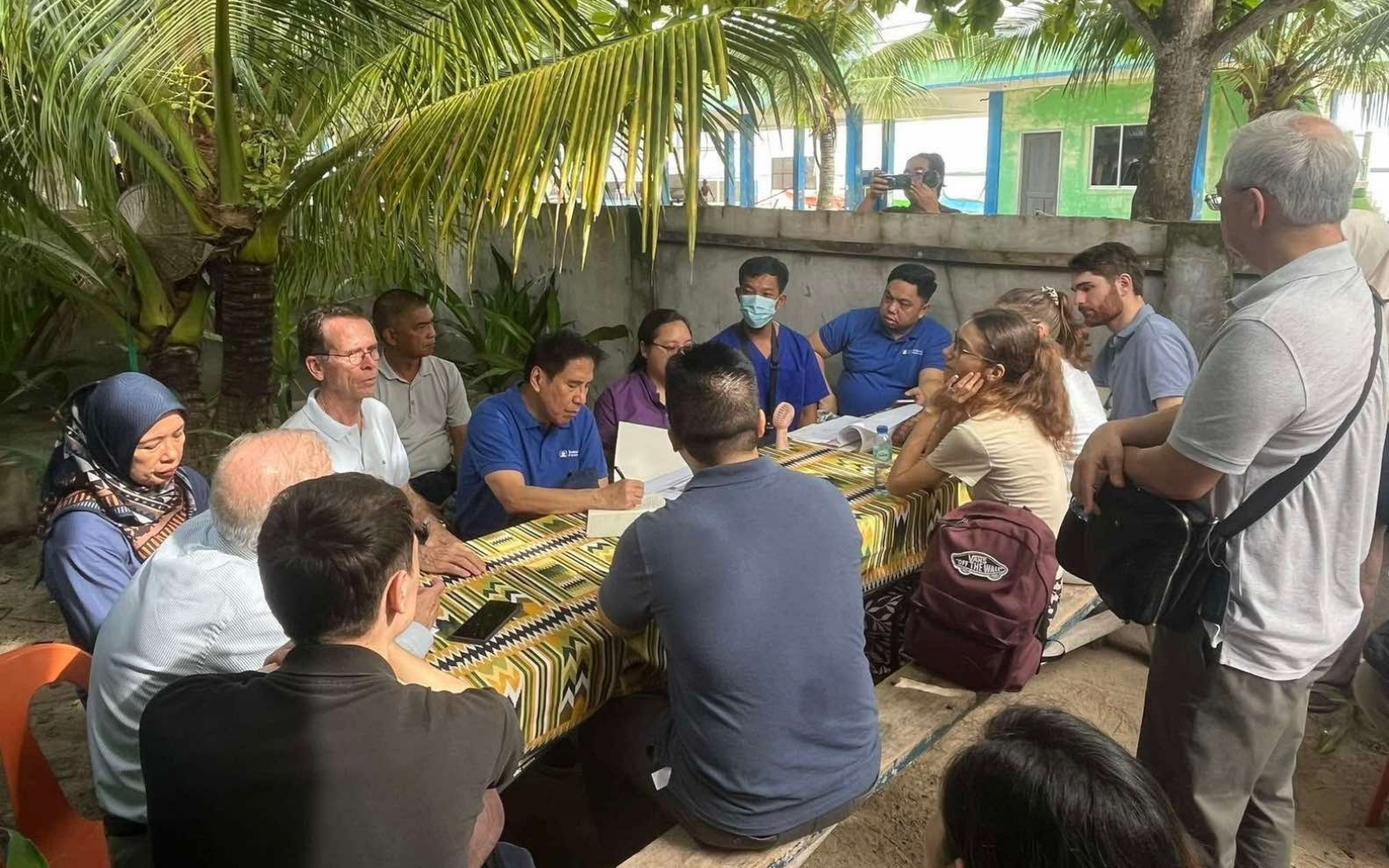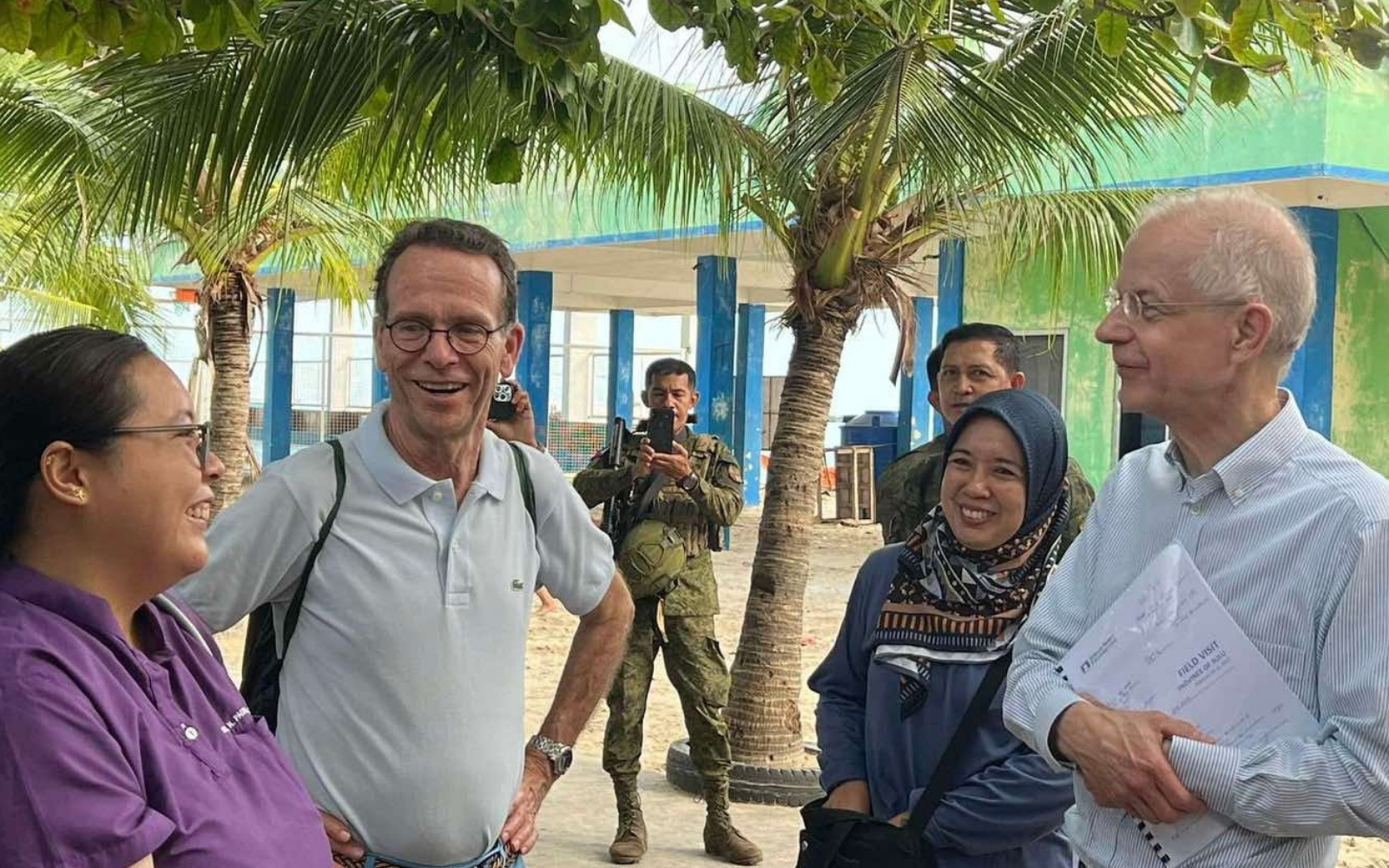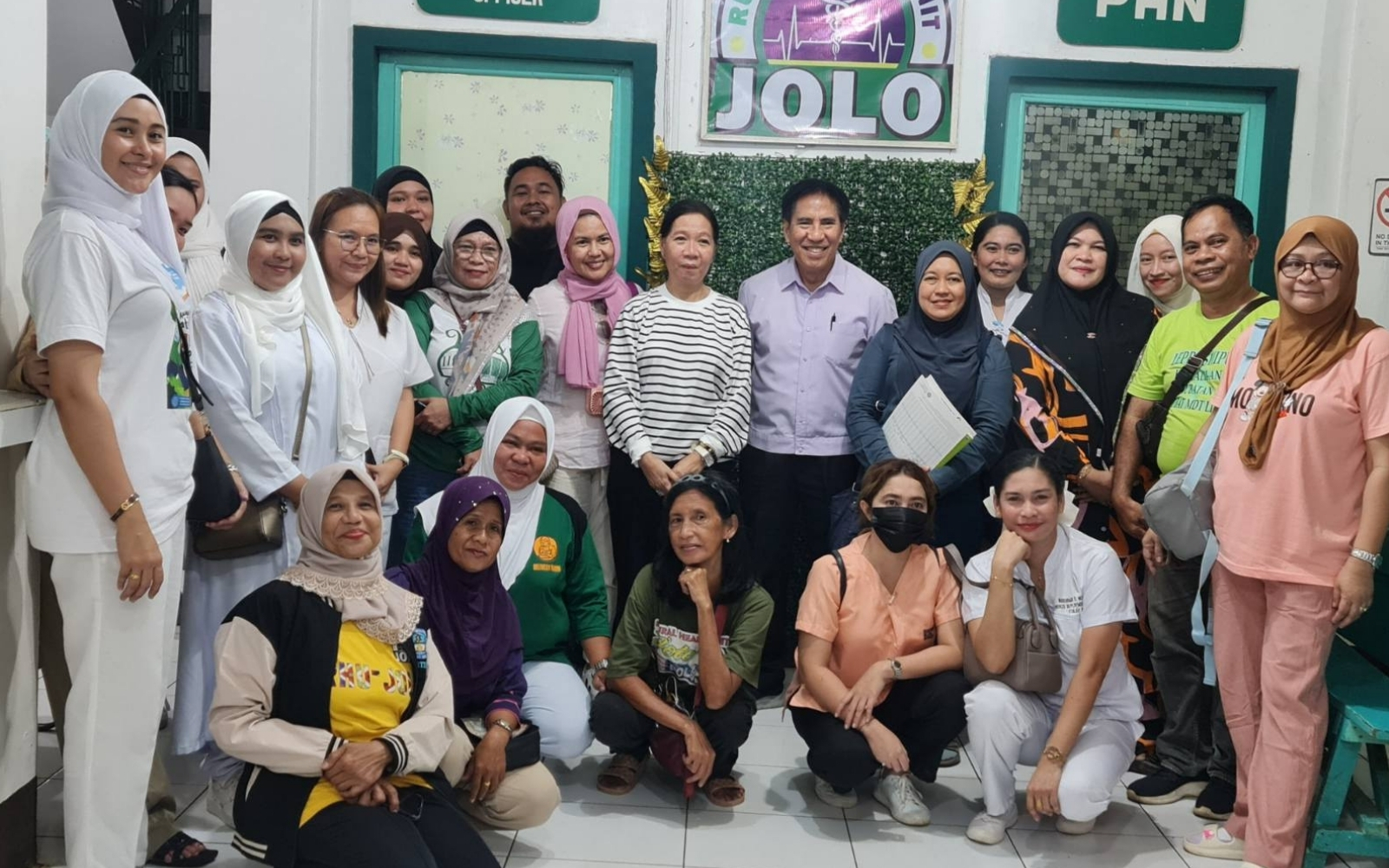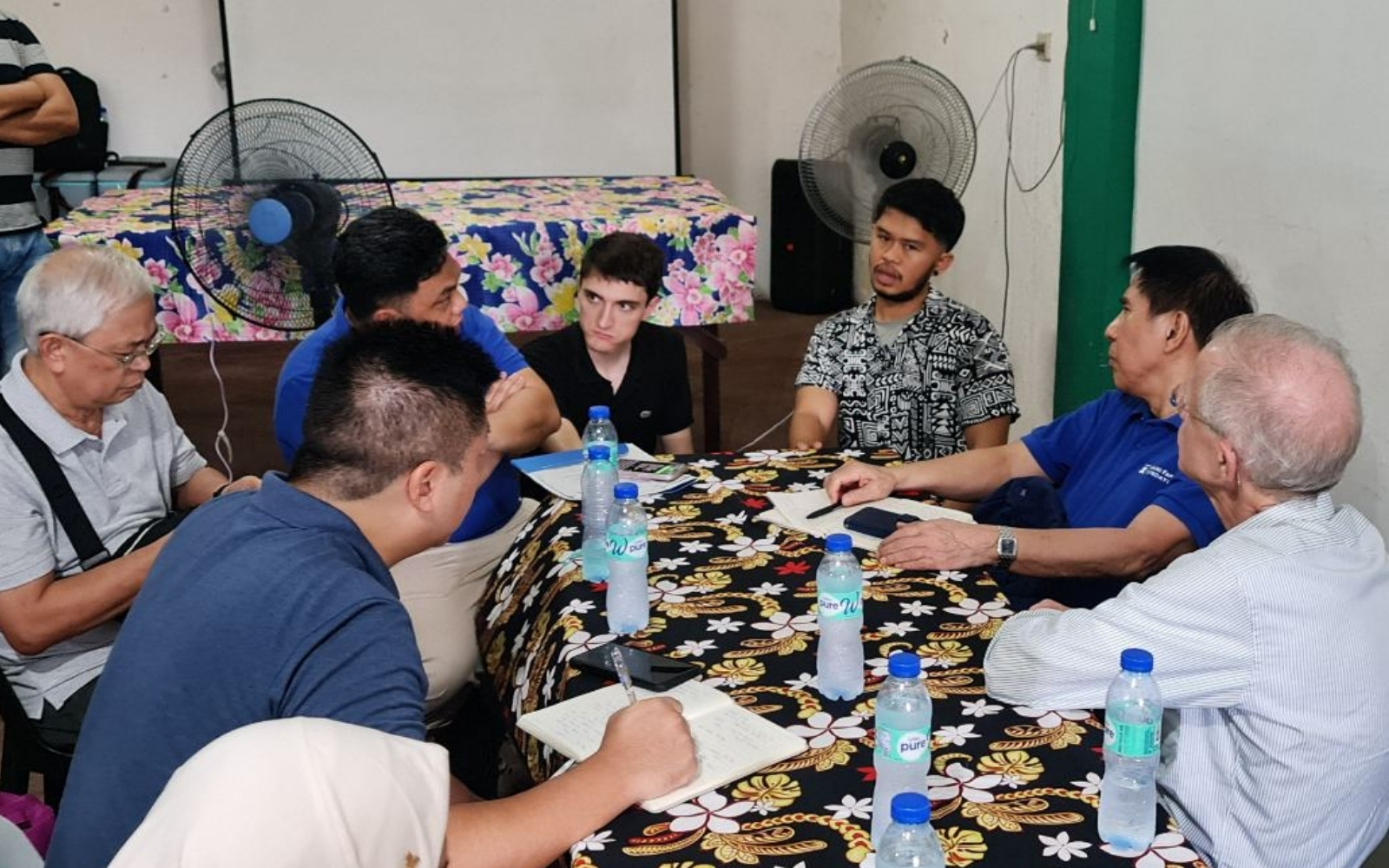Health Gaps and Opportunities: A Look into Sulu’s Rural Health Units
Stories | by Krizzia Esperanza

Issues of malnutrition, maternal health, adolescent pregnancies, and financial and logistical struggles of local health systems become apparent during the recent scoping visit of the Zuellig Family Foundation (ZFF) in Sulu last February 11-12, 2025. ZFF, led by Chairman Dr. Manuel Dayrit and Board of Trustees member Daniel Zuellig, along with other members and staff, visited three Rural Health Units in the province—Jolo, Hadji Panglima Tahil, and Indanan.
Addressing Malnutrition
Malnutrition emerged as a critical health issue across multiple municipalities. In Jolo, the Rural Health Unit (RHU) implements nutrition programs, including deworming, Vitamin A supplementation, Oral Polio Vaccine (OPV) administration, and anthropometric measurements. While these efforts have led to an increasing cure rate for severe acute malnutrition (SAM) and moderate acute malnutrition (MAM), challenges remain due to frequent shortages of Ready-to-Use Therapeutic Food (RUTF) and vaccines. Barangay Health Workers (BHWs) play a crucial role in tracking pregnancy, monitoring child growth, and referral to health facilities.
In Hadji Panglima Tahil, where 236 out of 1,225 children aged 0-5 years are stunted and 18 suffer from wasting as of the time of the visit, malnutrition remains a problem. The predominantly Badjao population faces erratic food availability, and cultural beliefs that discourages participation in health promotion activities such as prenatal care and micronutrient supplementation. Supply chain challenges persist, with stock outs of essential items.

Challenges in Maternal Health
Maternal health remains a pressing issue in Sulu, particularly in Jolo and Hadji Panglima Tahil. In Jolo, teenage pregnancy is a growing concern, with 207 recorded cases last year. However, only one teenage mother completed the recommended four prenatal visits and postnatal care. To address facility-based delivery gaps, Jolo RHU provides maternity packages and incentives—offering 300 pesos to traditional birth attendants, locally called panday or hilot, for referring mothers and 200 pesos to mothers who opt for facility-based deliveries. Despite these measures, home births remain prevalent due to deep-rooted trust in traditional practices.
In Hadji Panglima Tahil, only 25 out of 145 recorded deliveries took place in health facilities, with many newborns left undocumented. Adolescent pregnancy remains high, with a recorded case of a 13-year-old mother. The RHU faces challenges in postnatal care, as only two teenage mothers returned for follow-up consultations. Strengthening maternal health programs that are culturally-sensitive and inclusive, promoting facility-based deliveries, and improving birth registration are necessary steps to improve maternal and child health outcomes in the province.
Adolescent Pregnancy and Youth Health
Jolo RHU implements programs aimed at reducing adolescent pregnancies, including an annual Adolescent Health Summit and school-based lectures on the risks of early pregnancy. Despite these efforts, teenage pregnancies remain widespread, with limited postnatal follow-ups among adolescent mothers. Monthly mothers’ classes offer ongoing maternal and child health education, but behavioral and cultural barriers continue to challenge progress.

Hadji Panglima Tahil faces similar issues, with adolescent pregnancies contributing to high maternal and child health risks. Due to limited access to reproductive health services and strong cultural influences, only a small fraction of teenage mothers receive adequate prenatal and postnatal care. Targeted health education and improved access to adolescent health services are necessary to address these gaps.
Financial and Logistical Struggles in Local Health Systems
Local health systems in Sulu face financial and logistical constraints that hinder service delivery. Hadji Panglima Tahil RHU operates on a monthly budget of 30,000 pesos from the Bangsamoro Autonomous Region in Muslim Mindanao (BARMM) and an additional 17,000 pesos from the local government for operational expenses. However, delayed fund releases and unprocessed PhilHealth reimbursements since 2021 have placed financial strain on the facility. The RHU also faces challenges in vaccine distribution, particularly among Badjao children who lack formal birth records, making immunization tracking difficult.
Indanan RHU operates under similar constraints, receiving a 30,000-peso monthly budget from the Ministry of Health (MOH) and an additional 30,000 pesos from the local government. Despite its accreditation with the Maternal Care Package (MCP), it has not received any PhilHealth reimbursements since 2019. Limited funding has affected outreach programs, particularly immunization efforts and mental health services, where 90 patients are currently under community-based care. Additionally, drug abuse is emerging as a concern, requiring integrated health and social interventions.

Strengthening Health Leadership and Governance
The RHUs in Sulu face broader governance challenges as the province is considered no longer part of BARMM, leaving uncertainties about health service continuity. There is a pressing need to develop local leadership and governance capacity to ensure sustainability. Training programs for local health leaders and policymakers could strengthen the implementation of health programs and improve service delivery.
Moving Forward
The visit to these RHUs reinforced the importance of sustained support for local health systems. Addressing stockouts of essential supplies, improving nutrition education, and enhancing health service delivery are crucial steps in improving health outcomes in these communities.
Strengthening leadership and governance, particularly in areas where health is not a local priority, will also be key to ensuring that these RHUs can continue serving their populations effectively. ZFF hopes to work alongside local health leaders to create lasting improvements in health systems across Sulu.